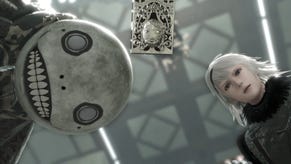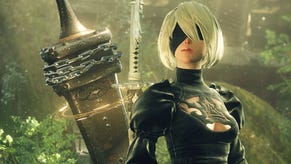What's up with Nier: Automata on PC?
Amateurish issues mar what could have been one of Platinum's best PC games.
Widely acclaimed when it launched - receiving a Eurogamer Recommended no less - it's the PC version of Platinum Games' latest title that we'd been waiting for. Even running with the raw power of PS4 Pro, resolution is limited to 1080p, but more worryingly are the frequent glitches and stutters - especially prevalent during the game's more open areas. Our hope was that the PC version could power past these limitations - but alas, it's not to be. And on top of that, some wobbly conversion work introduces new issues, some of which we can't believe we're seeing.
Unfortunately, first impressions are not especially positive due to an issue with the game's full-screen mode. A fresh install of the game presented us with a squished 4:3-like image regardless of which resolution was selected - and it's not an issue limited to our set-up. Thankfully, community tool Borderless Gaming was available to force a borderless window mode, which does the job - restoring the correct aspect ratio. But the fact that the game launched in this state isn't great. It is possible to play in full-screen mode though.Jumping over to the Steam forums, we found a patch created by the user Kaldaien designed to solve these strange resolution issues, among other things. This is the same user that helped improve various other PC ports including the likes of Namco's Tales of Berseria and Tales of Zestiria.
But even with community fixes saving the day, what's clear is that Nier: Automata is a demanding game, requiring a fast PC to shine, and some mild settings tweakery. The more we played, the more we began to understand why Platinum limited PS4 Pro to 1080p output - it may not be running a state-of-the-art engine, but it's truly taxing on hardware. Mid to upper-end GPUs deliver a console-beating experience, but we required a GTX 980 Ti to produce a 1440p experience that improved upon PS4 Pro's wobbly frame-rate.
But even paired with a six-core i7 5820K, there's still visible stuttering as we explore the over world - manifesting as off-putting stutter. Our belief is that this is an engine optimisation issue - CPU load barely breaks 20 per cent, while at 1080p our GPU utilisation is rather low at just 60 per cent, rising to 95 upwards at 1440p.
When those hitches kick in, the GPU drops to 20 per cent load. Memory bandwidth and storage would be our next ports of call in figuring out what the bottleneck is, but with quad-channel RAM paired with a fast SSD, we can rule out those issues. Now, the stuttering is reduced compared to the PlayStation 4 versions, but even with a highly power enthusiast grade PC, there's no way we could get this title to sustain 60fps.
But there's also the sense that even the basics aren't really being looked after here. Just like PS4, all the game's cut-scenes are pre-rendered videos that were captured at the base PS4's 900p, and annoyingly encoded at 30ps too. Unfortunately, many users - including us - have run into severe playback issues. They're unbelievably choppy. Considering that these sequences are used for major story beats, the lack of smooth playback here is highly frustrating.
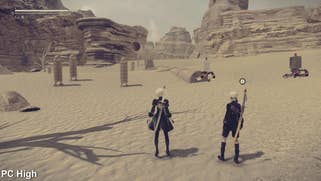
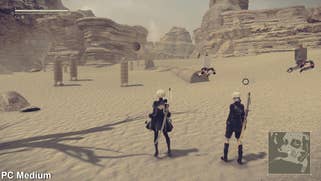
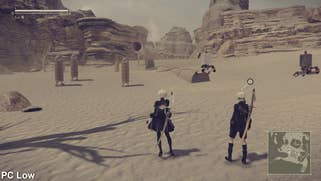
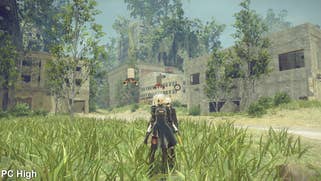
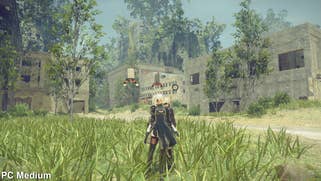
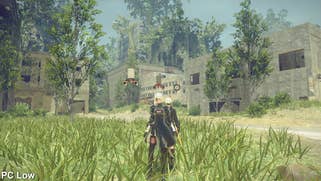
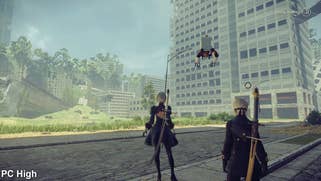
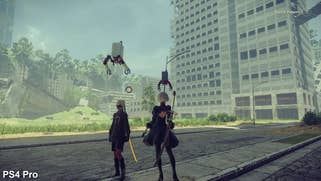
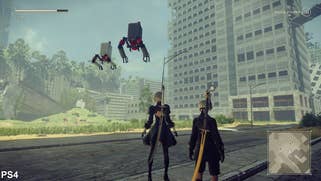
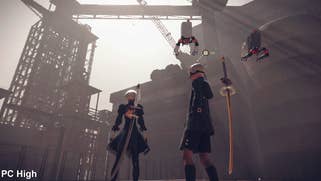
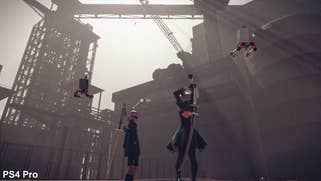
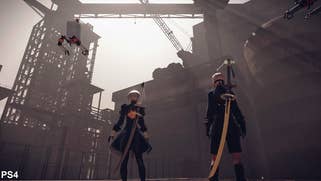
So, what about PC-specific enhancements then? Well, don't go in expecting a Frostbite-level of PC scalability here. In fact, effectively there's only one visual upgrade on the menu - multi-sampling anti-aliasing (MSAA). It's a bit of a rarity these days, so on the one hand, it's nice to see it implemented here. On the other, it's brutally expensive and hits frame-rates hard. Pop over to GameGPU's extensive graphics card testing for this title and you'd be hard-pressed to come to any conclusion other than that this game is not fit for purpose.
GTX 980 Ti for a 1080p60 experience? GTX 1080 for 1440p? Well, the truth is that the game becomes a lot more playable on a lot more hardware if you simply disable anti-aliasing altogether. Many players might miss this, as MSAA is directly linked to quality settings - choose the high setting and a crippling 8x MSAA option is automatically dialled in. Our advice? Cut it out completely. In actual fact, MSAA actually causes minor visual issues when used in conjunction with ambient occlusion - the kicker being that for some bizarre reason, AO also enables a separate post-process anti-aliasing pass (negating the need for MSAA).
The rest of the options menu is sparse but ultimately an improvement over previous Platinum ports. For one thing, Nier fully supports arbitrary resolutions, which was never the case in its previous games. It's just a shame that resolution support is hobbled out of the gate requiring a community-made patch to function properly in the first place. Other enhancements are basic 'off the shelf' stuff though - 16x anisotropic filtering offers a decent enough upgrade over PS4 Pro's offering (which in itself is a vast improvement over base hardware's presentation). AF is a big deal in this game since Nier's game world features a lot of large, flat open areas.
The blur option is also useful, enabling a nice object motion blur feature that is also present on PS4 Pro, but not on the standard PS4. Then, of course, we have shadow quality, which has an impact on the resolution of shadow maps and the distance at which they are drawn. The high setting is consistent with the console version and reducing this has a significant impact on visual quality so we recommend aiming for high unless you're trying to play on a low-end PC. One thing to note is that object pop-in is a problem in all versions of the game and cannot be alleviated via any of the in-game options. You can see grass and buildings pop into view on PC just as they do on PS4.
Ultimately, what we have here is a port by the numbers that is adequate, but not especially impressive bearing in mind how easy it is to run up against clownish issues that suggest a profound lack of QA. Performance isn't great, but it is relatively easy to tweak up a highly playable experience that does represent a console upgrade - it's just disappointing to see that this game has deep, engine-level issues that not even a vastly powerful PC set-up can address.
It's nice to see Platinum implement more standard features this time - Metal Gear Rising only supported select resolutions and refresh rates, while the likes of Transformers and Korra had similar issues. Nier: Automata's selection is hardly cutting-edge or indeed optimal, but there is at least some progress here - marred by the amateurish issues elsewhere. Ultimately, Platinum's latest is a very good game that is worth playing. Neither PS4 nor PC versions of the game offer up the performance you would want necessarily but the PC release has the potential to offer the best experience, if you have the hardware and can put up with the obvious issues. Just don't expect cutting-edge visuals or rock-solid performance here.




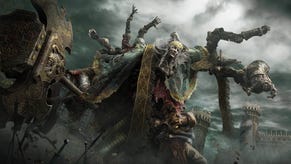

-0-0-screenshot.png?width=291&height=164&fit=crop&quality=80&format=jpg&auto=webp)
